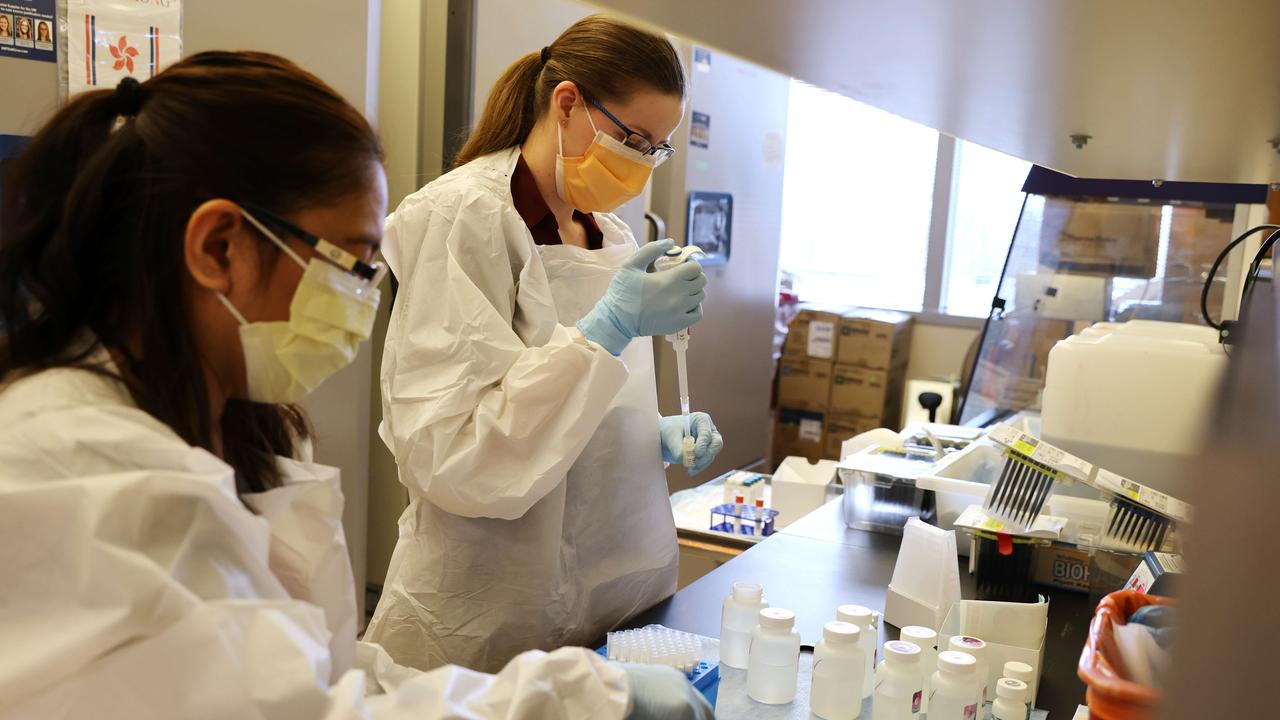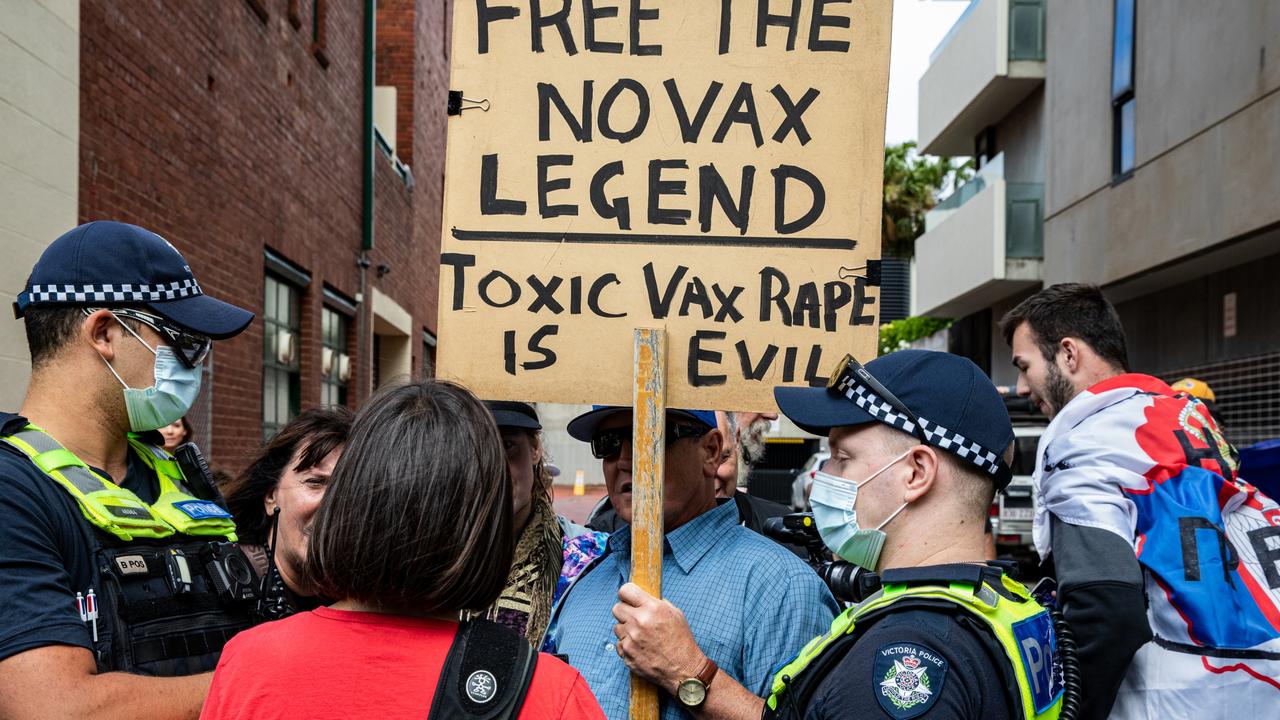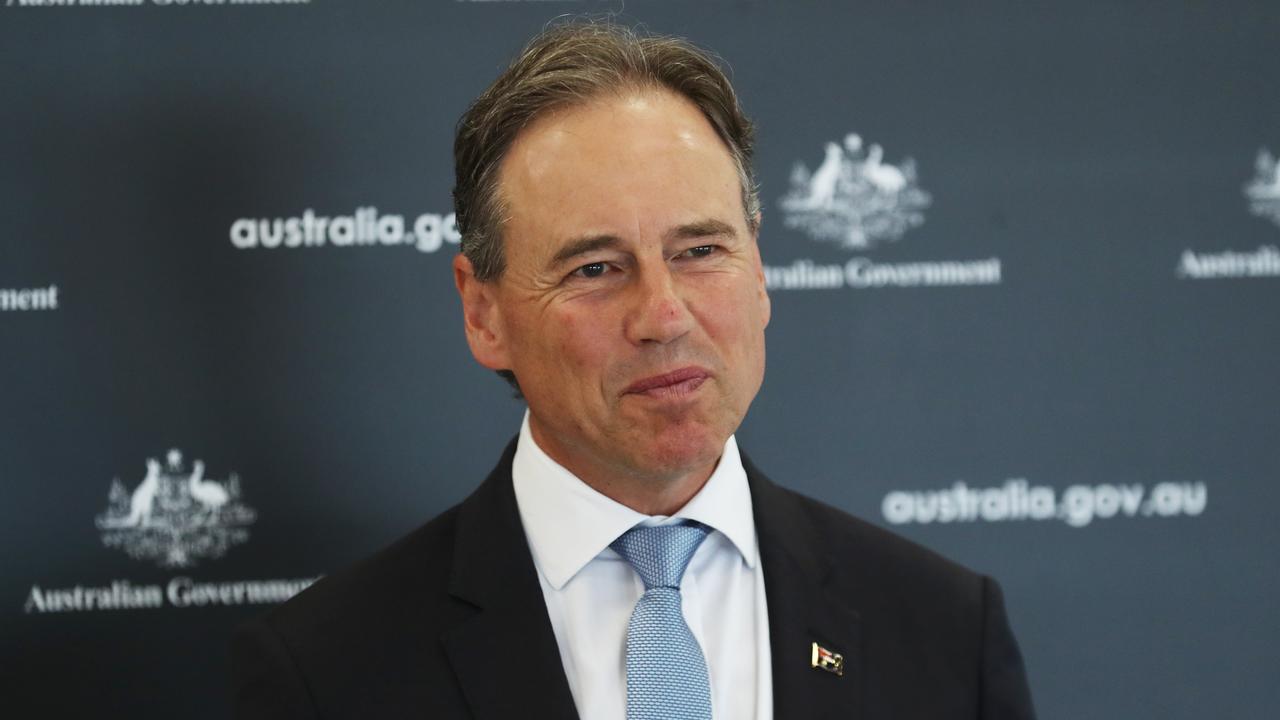Why Australian anti-vaxxers have been holding out for new Novavax jab
Vaccine-hesitant Aussies will soon have one less excuse after a hotly anticipated Covid jab was finally approved by the TGA. So what’s all the fuss about?
A potential game-changer in Australia’s Covid battle is on its way, following news the Novavax vaccine has finally been given the green light.
On Thursday, it was announced that the Therapeutic Goods Administration (TGA) had provisionally approved the jab, with more than 50 million doses heading to Australia.
Speaking to reporters, Federal Health Minister Greg Hunt said he hoped the new option would ensure almost the entire population would soon be vaccinated against Covid.
The announcement came after months of speculation about the role Novavax could play in Australia’s rollout, with many Aussies insisting it was their jab of choice, and delaying getting vaccinated with existing options as approval hung in the balance.
So what’s all the fuss about?
What is the Novavax vaccine?
Novavax is Australia’s first “protein sub-unit” vaccine.
Unlike existing options such as AstraZeneca, which is a “vector” vaccine, and Moderna and Pfizer, which are both messenger RNA (“mRNA”) vaccines, the TGA explains that protein vaccines “use a non-infectious component found on the surface of the coronavirus and are manufactured in cells in a laboratory”.
After vaccination, immune cells recognise the vaccine protein as foreign and launch an immune response against it.
For that reason, it is considered to be more of a “traditional” vaccine.
In contrast, the Australian Government’s Department of Health website explains that the AstraZeneca vaccine uses a harmless, weakened animal virus (called a viral vector) that contains the genetic code for the coronavirus spike protein.

Once this enters the body, it tells cells to produce copies of the spike protein. A person’s immune cells then recognise the spike protein as a threat and start to build an immune response against it.
Pfizer and Moderna are mRNA vaccines, which mean they work by using a genetic code called RNA to make a person’s cells produce the coronavirus’ specific spike protein.
The immune system cells then recognise the spike protein as a threat and begin building an immune response against it.
The RNA from the vaccine does not change your DNA in any way, and your body quickly breaks it down.
These jabs do not contain any live virus and cannot give you Covid.
How will it be administered?
The TGA has approved Novavax for Aussies aged 18 years and older.
It is recommended that the vaccine is given in two doses, which are to be administered three weeks apart.
At the moment, it is only approved as a two-dose course, which means Novavax boosters are not yet an option.
Why are ‘anti-vaxxers’ excited about it?
TGA boss Professor John Skerritt acknowledged that there was a significant amount of interest in Novavax among those who have so far been hesitant to take other doses, given Novavax was a more “traditional” type of vaccine which most of us have had previously.
For that reason, many Australians have claimed to be more comfortable rolling up their sleeves for Novavax – and it could be good news for our already stellar vaccination rate.
“There are some individuals who have been waiting for Novavax and it’s great that it’s finally been approved,” Prof Skerritt told reporters this week.

“Our dream is that we might turn our 95 per cent [vaccination rate] into 97 or 98 per cent in this country. Who knows.
“The technology on which it is made is an older technology; it uses a protein.
“I would have had several hundred emails from individuals and groups who have said for whatever reason we would like to have [this] particular vaccine … this just gives them further choice.”
When will it arrive?
The Government has so far purchased 51 million doses, with the deal reached in January.
The first shipment to Australia is expected to arrive “in the coming month”, according to the TGA.
While the TGA has provisionally approved Novavax, there’s still one more step, with the Australian Technical Advisory Group on Immunisation (ATAGI) also needing to give the OK.
That’s expected to pass though, which means Novavax appointments should be available within weeks.

What are the side effects?
Like all vaccines, there’s a small risk of side effects, although the vast majority will be mild and temporary, such as a sore arm or muscle aches, headaches or fatigue.
Preliminary phase 3 results indicate that the incidence of serious adverse events was low.






